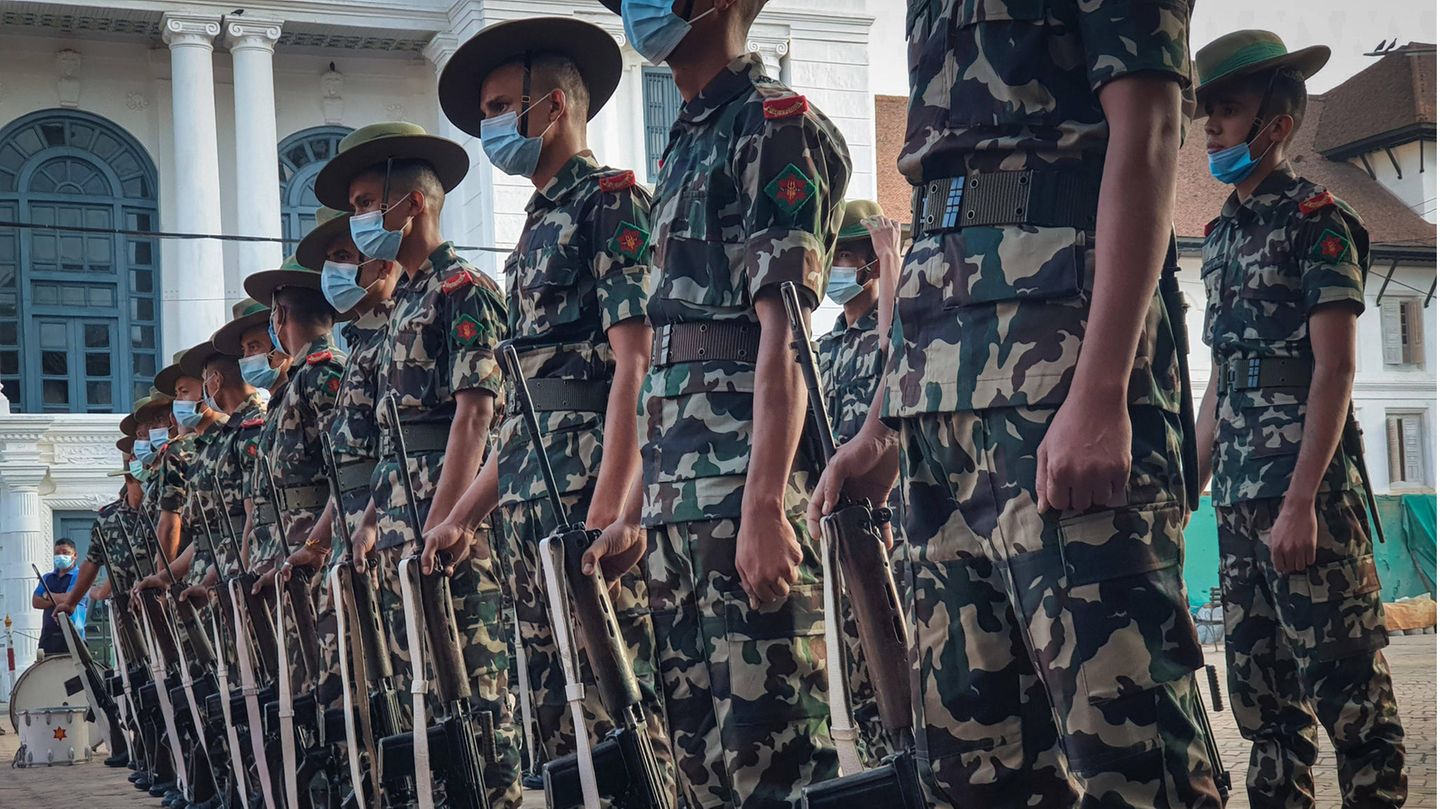Nepal is one of the poorer countries in the world. The Himalayan tourism and the expatriate Nepalese bring in money. War can also be lucrative, many are fighting in Europe: on the side of Ukraine or Russia.
At home, at an altitude of 8,848 meters, the “death season” is just coming to an end. 17 people have died or are missing on Mount Everest in the past few months. “A bad year,” says Mingma Gyalje Sherpa, who organizes tours to the highest point in the world. Despite such disasters, mountain tourism remains one of the most important sources of income for the poor Himalayan state. A lot of money also comes into the country via the Nepalese abroad. And since the start of the Ukraine war, some of them have had a new job option: risking their lives in distant Europe. For states that are not theirs.
Nepal on the west side
A month after Vladimir Putin ordered the attack on the neighboring country, a young man named Pratap Basnet attracted attention in far-away Asia: in March 2022 it became known that the Nepalese was fighting alongside Ukrainian soldiers against Russia. In his homeland, there was a debate as to whether this should be the case. Because neutrality is actually a raison d’etat of Nepal. Even if the government has sided with the West and thus against Russia. The new Prime Minister, on the other hand, is considered to be pro-China.
In the meantime, there are increasing reports that other Nepalese are also hired out as mercenaries – and are in the service of Russia. A lure offer from the Kremlin serves as an incentive. About a month ago made it possible – if the interested party committed to the Russian military for a year. However, quick citizenship only applies to deployments in the war against Ukraine, which Russia calls “special military operations”.
Hundreds of Nepalese have since joined the Russian army, sources say, including veterans of the Nepalese military. There may also be some battle-hardened soldiers among them. For ten years, civil war raged in Nepal between rebellious Maoists and the regular army loyal to the king. The conflict ended in 2006 with the abolition of the monarchy.
Africans on the side of Russia
Foreign soldiers are not uncommon on both the Ukrainian and Russian sides. For example in the ranks of mercenary armies like the Russian Wagner Group. A few weeks ago, she presented the body of an American who had fought for Ukraine. Recently dived into . However, it is unclear whether this is true. So is the number of foreign men and women involved in the conflict. A year ago, Kiev estimated the number at around 20,000 and even set up its own unit for them, the “International Legion”. It has also been joined by Nigerians, Senegalese and Algerians.
Nepalese mercenaries are not uncommon. The country has a long tradition of sending its young people into foreign armies. Not only is it one of the largest providers of troops for the UN blue helmets, the Nepalese served under the name “Gurkhas” 200 years ago in the British and later the Indian army. In addition, there are said to be a few thousand with the French Foreign Legion at the moment.
Like many poor countries, Nepal is also affected by the high energy and food prices, which are also caused by the Ukraine war. At the same time, the country’s government is trying to maintain good relations with the large neighboring states of India and China, neither of which are declared opponents of the Russian invasion. In fact, however, the small state is nothing more than a pawn between the great powers.
Nepalese youth frustrated
Earlier this year, an airport funded by China opened in Pokhara, the geographic center near the Annapurna mountain range. The airport is considered one of the Chinese debt traps that Beijing is luring its neighbors into to secure its influence. India, on the other hand, hinders flight operations by not allowing direct entry lanes, making approaches unprofitable. Because the politicians in Kathmandu do little or nothing at all to counteract this influence at the expense of the population, the frustration among the young population is growing – and quite a few decide to seek their fortune elsewhere. And be it in war.
In “The Diplomat” a Nepalese tells how he ended up in the Russian army. The man, who did not want to give his name, initially worked in Dubai in the security industry. But then he heard that he could earn more money in the Russian army. That’s why he traveled to Moscow and had himself examined. The fact that he is suitable as a recruit is also due to the “relaxed requirements”, as he says. “You used to have to be able to speak Russian, but now English is enough.”
Sources: DPA, AFP, , The Diplomat, , Newsweek, , ,
Source: Stern
I have been working in the news industry for over 6 years, first as a reporter and now as an editor. I have covered politics extensively, and my work has appeared in major newspapers and online news outlets around the world. In addition to my writing, I also contribute regularly to 24 Hours World.




